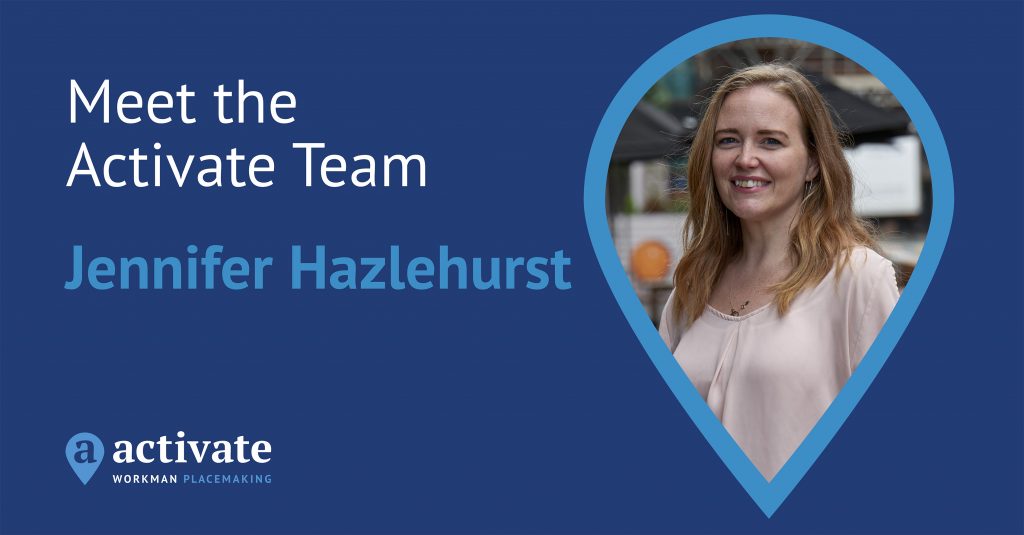
How to make places help people to generate social value? Linking up with local councils, schools, and social enterprises can embed commercial property in the local area, helping buildings contribute to vibrant communities.
Sustainability does not begin and end with carbon reduction. The “S” of ESG – Social – has a huge role to play. The buildings in which people work, play, and shop define and shape their neighbourhoods, especially in cities, where they can have an enormous social impact upon communities. So how can investors and property managers ensure assets benefit both occupiers’ employees and the communities that surround them?
What is social value?
Creating social value involves engaging communities both within and around a development. When buildings support environmental, economic, and social wellbeing, they improve the quality of life of people using them by providing access to services and integration into the wider economy and society. Across the Workman-managed portfolio, our strategies are specifically designed to engage occupiers and visitors, to draw in the local community, and make buildings a part of the local community.
Great Northern: creating spaces that people fall in love with
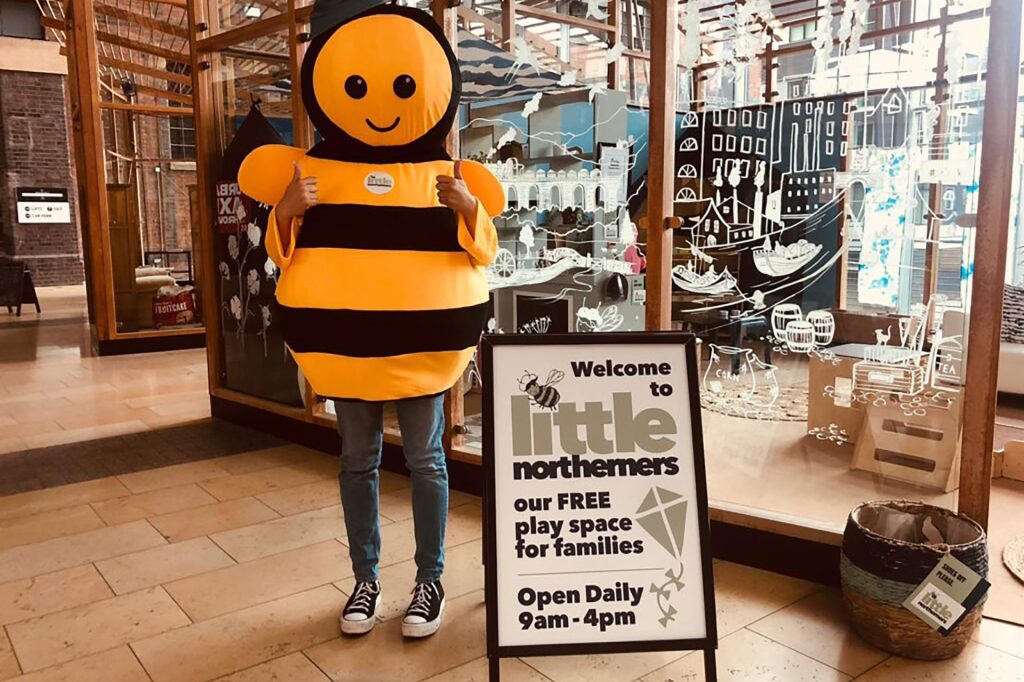
Located in the heart of Manchester city centre, Great Northern is a mixed-use site, home to a cinema, bowling, restaurants, bars, entertainment venues, shops, and public square. It takes its role as part of a wider community seriously, offering services to local businesses and residential areas neighbouring the site.
A new space, “The Village Hall”, is open to any business on site for meetings and training sessions. The Workman team holds meetings in the space, and it is used by community groups such as a female choir group, and a parents-and-tots group.
Separately, “Little Northerners” is fitted out as a free space for families aimed at pre-school children for active and constructive play with a dolls house, a tepee, and construction blocks. Once a week, the space is hosted by a Play Facilitator. This is next door to the “Book Nook”, a free book-swap library run by volunteers from neighbouring residential block Great Northern Tower and from Manchester University, who organise and alphabetise the books. The space is used throughout the day, with a turnover of 1000+ books per month.
Outdoors, a public amphitheatre area has been created in the square at the front of the site. For summer, this was transformed into a giant sandpit with 50 tonnes of play sand, buckets and spades, and a large, wooden structured playhouse, free to use at any time of the day. A Forest Tots practitioner runs free weekly play sessions, which see children pour into the area, accompanied by parents and grandparents observing from surrounding picnic tables and seating areas.
Owners Trilogy and Peterson Group were originally granted planning consent to develop the warehouse into apartments, but reassessed plans following the pandemic, so official redevelopment of the site has yet to begin. In the meantime, the use of the space – much of which has developed organically – has informed the future development plans. Many popular community initiatives will be carried forward as part of this new neighbourhood within city centre Manchester, as the site will retain its public realm areas alongside private residents-only or office-work-only areas.
Touchwood: reaching out to schools
Touchwood, the prime Solihull shopping centre, which features 80+ stores – including John Lewis – plus 20 bars & restaurants and a Cineworld cinema, was created to provide an environment that not only extended the retail, commercial and leisure offer of the town, but also integrated into the existing fabric of the area. The centre is owned by US real estate investment firm, The Ardent Companies and managed by Workman, whose onsite property management team regularly consults with community partners to run initiatives that involve, attract, and support the local community.
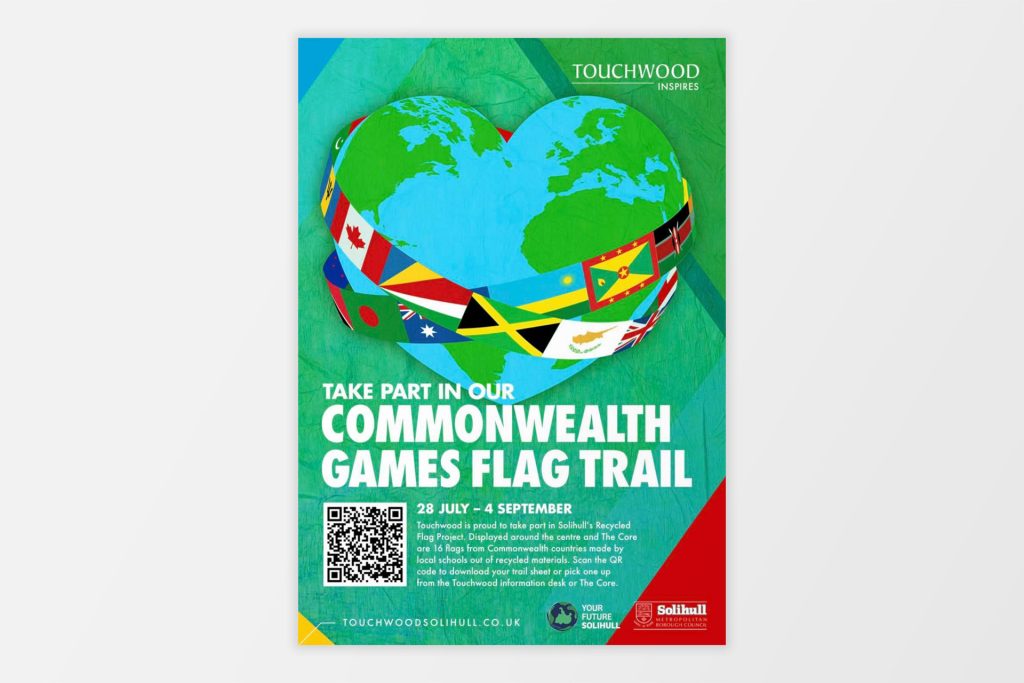
It has developed strong ties with local schools, most recently working in conjunction with Solihull Council to run a competition where local schools were invited to create a flag for their chosen Commonwealth country made of entirely recycled material. The 16 flags then featured as a trail around the centre, with visitors answering quiz questions as they identified each flag. The centre has also fostered links with a local special needs school, with three students attending each week to do work experience. One has since been employed as part of the centre’s housekeeping team.
Republic: collaborating with charities
A next-generation office and education campus spread over four buildings comprising 650,000 sq. ft of office and retail space, Republic is at the forefront of East London’s commercial and cultural regeneration. Brought on board by Trilogy Real Estate and fund manager LaSalle Investment Management, Workman’s role is to manage the property effectively, while also helping it become a part of the local community.
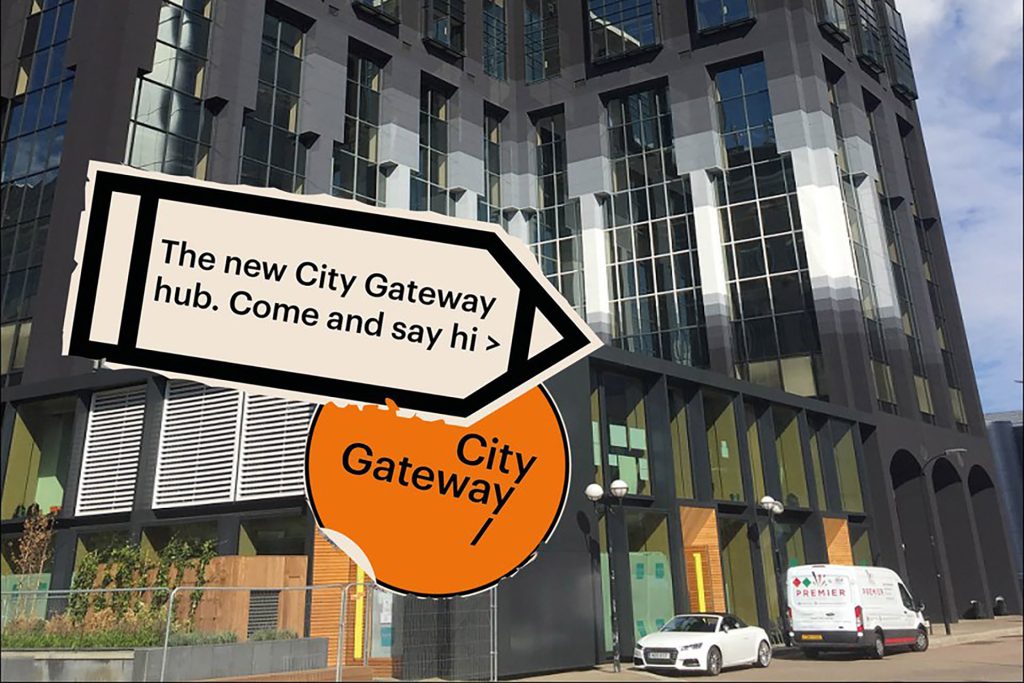
Its proximity to both the affluence of Canary Wharf, and Tower Hamlets where more than half of all children wake up in poverty, makes it an ideal base for City Gateway, a charity which provides education and opportunities to young people from disadvantaged backgrounds, along with volunteering opportunities for corporate partners. The charity provides support services, training courses, Traineeships and Apprenticeships for young people, readying them for the workplace. Through a network of placements with world-leading employers, City Gateway provides opportunities for employment at Canary Wharf, Republic and beyond. Indeed, Welcome has already facilitated several Apprenticeship schemes within the Republic campus.
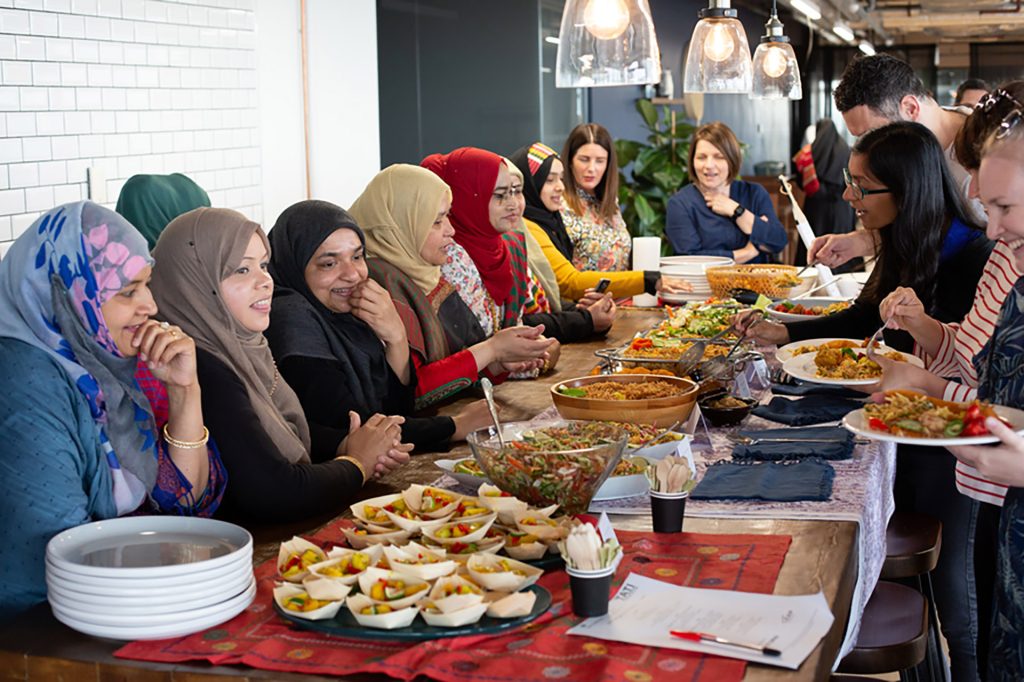
The site is also home to a female-run social enterprise café called Tati, serving Bengali fare. Supported by not-for-profit Oitij-jo Collecti, with backing from the Mayor of London and other partners, the women obtained hygiene certificates, worked in professional kitchens, chosen the café décor, and developed front-of-house skills, before selling meals to Republic occupiers on a weekly basis.
Silverburn: cleaning up the community
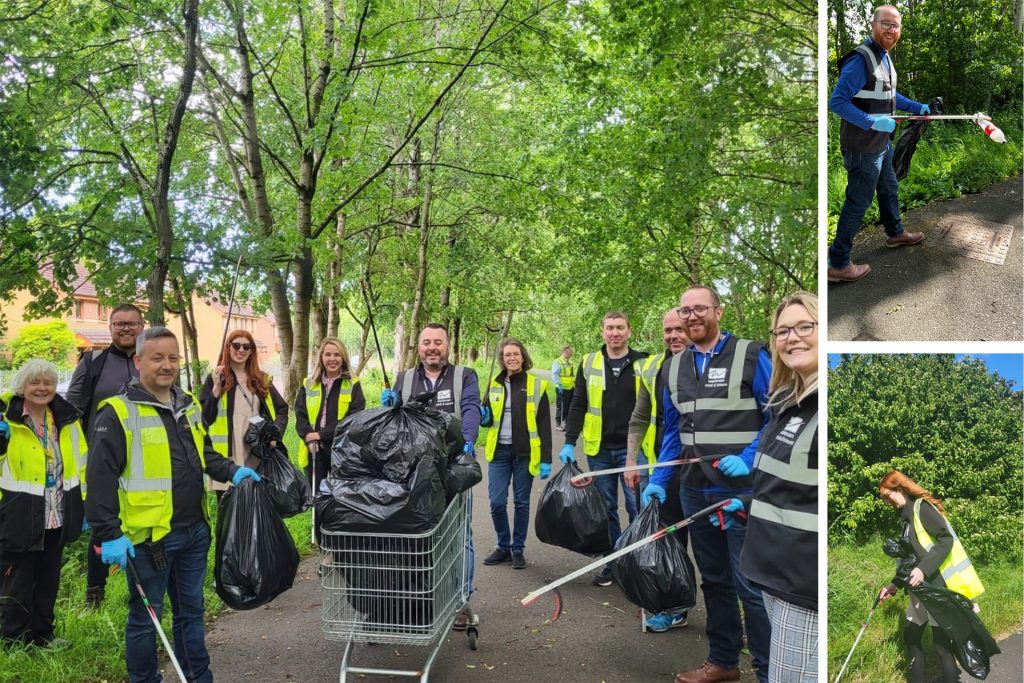
As part of environmental and community outreach work at Silverburn, Glasgow’s flagship shopping centre, the Workman property management team joins the quarterly litter pick in residential areas surrounding the 1,500,000 sq. ft site. Organised in conjunction with Glasgow City Council, the most recent effort took place on a clear sunny day and resulted in a big pile of rubbish collected by an enthusiastic team of volunteers. Since opening in 2007, Silverburn has historically generated consistently high footfall of 15 million people per year, boasting one of the highest average spends-per-visit thanks to affluent catchment areas such as Newton Mearns, Clarkston and Giffnock. With 125 retail and leisure units, the centre, owned by Eurofund and Henderson Park, is currently 80% occupied.
Further efforts to give back to the local community come in the form of official digital sponsorship of the Open Goal Broomhill FC football team. Always looking for creative ways to engage with its audience and customers, this partnership for the upcoming Lowland League season builds on an already established involvement with the team, including hosting its Keeping the Ball on the Ground show at Silverburn in 2019. This latest collaboration between Silverburn and the football club also draws in the Open Goal podcast team, who will film their popular football-dedicated podcast at the centre.
Read more about our approach to Building Community across our managed portfolio.
Activate, Workman’s placemaking team, has been appointed to deliver destination marketing and community engagement at two significant office locations: Spark Foundry, part of the Newcastle Helix tech and science community in Newcastle and the Round Foundry Media Centre including Marshall’s Mill in Leeds.
The work, which is set to begin later this month, will focus on creating communities of occupiers – both on and offline – and increasing engagement. The first step often involves reaching out to occupiers through surveys and site visits to understand what kinds of networking events or online content they would like to see offered at their workplaces. The goal is to uncover the needs and aspirations of the occupiers, and once the Activate team has ascertained this, the delivery of events and online community building begins.
With transatlantic law firm, Womble Bond Dickinson set to move into 106,000 sq. ft The Spark on 30 May, community engagement strategies for employees are pivotal to create social communities at such workplaces, enabling individuals who may be employed by a variety of different occupiers to interact.
Additionally, to connect the workplaces to surrounding local communities, the Activate team is working closely with the building managers to engage with local councils, local Business Improvement Districts and other stakeholders in both Leeds and Newcastle.
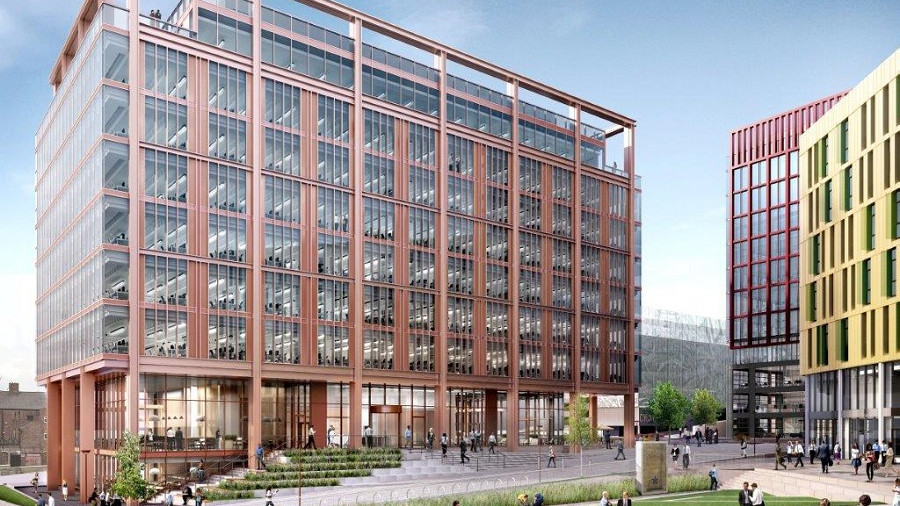
Michelle Atack, Destination Marketing Manager, said: “Now that more and more occupiers are returning, while flexing their in-office days post-pandemic, it’s vital that time spent in workplaces is as valuable and meaningful as possible. Activate’s destination marketing programmes not only increase return rates, our enlivenment strategies also help create communities that teams want to be a part of, with events they don’t want to miss.”
Andrew Sparrow, Director of Placemaking, said: “During the pandemic, people were starved of human interaction, especially in the workplace. Now people are excited to get people back together so that when they are in the offices, they are learning, developing, and collaborating again which can have such a positive impact on all our mental wellbeing. Our destination marketing programmes form a cornerstone of workplace community-building that extends beyond the professional into the social, and helps people find even more reason to return.”
Activate has been instructed by Sorbon Estates to develop both Destination Marketing and Placemaking strategies for Waterside Quarter, a new mixed-use development in Maidenhead.
The appointment, led by Esther Worboys, Placemaking Manager, and Megan Bywater, Digital Marketing & Events Executive, will see the Activate team implement a fully integrated marketing and stakeholder engagement strategy for the new restaurant, retail, and leisure district.
Esther Worboys said: “We are delighted to collaborate with Sorbon Estates and Shanly Homes to develop a marketing strategy that positions Waterside Quarter as a retail and leisure destination which appeals to local residents, potential tenants, and draws in visitors from a wider catchment area.”
Waterside Quarter, which already plays host to restaurant destination Bardo Lounge and a state-of the-art F45 Fitness Studio, is set to benefit from the Activate team’s wider enlivenment experience. Their first task will be to establish engaging digital channels and a vibrant seasonal events programme, in order to raise awareness and drive footfall.
Activate will also work closely with on-site occupiers, local businesses, community organisations and the Royal Borough of Windsor and Maidenhead to create a holistic programme that positions Waterside Quarter as a dynamic and lively place to live and visit, whilst also enriching Maidenhead town centre. The town offers connections to London Paddington in 19 minutes, and easy access to some of Berkshire’s best beauty spots.
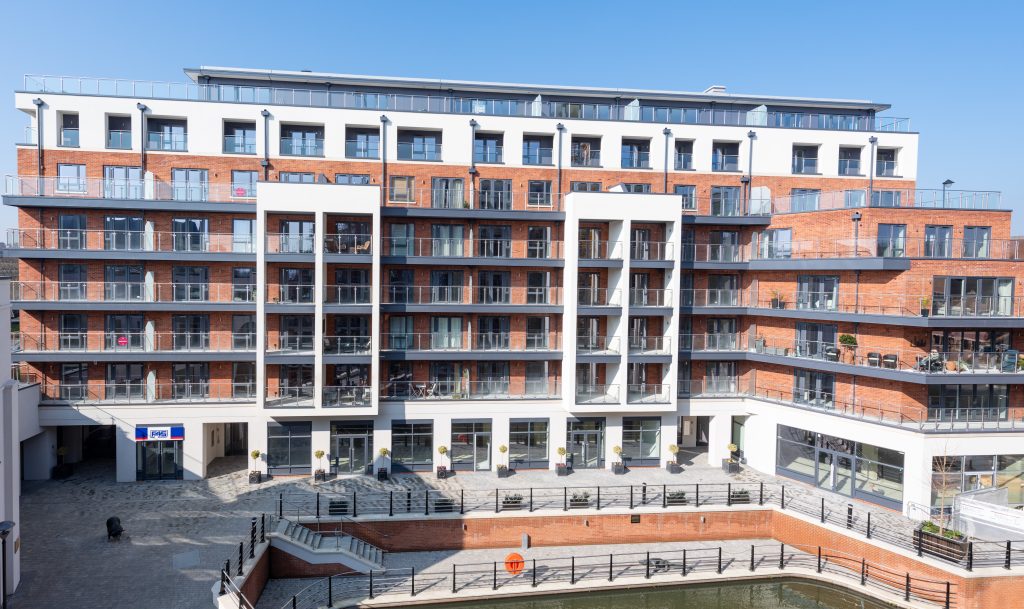
Months of successive national lockdowns provided consumers with the rare opportunity to accumulate high levels of savings (reaching nearly £75bn in Q1 2021, according to Statista). The ensuing summer of revenge spending brought customers back to shopping in their town centres. Now that summer is over, and with Christmas campaigns beginning against a media backdrop of inflation fears and predictions of shortages, our sector is preparing itself for the challenges of the coming months, writes Nick Hilton, Partner, Retail & Leisure, in Retail Destination magazine.
During the height of the pandemic, destination marketing quickly pivoted to digital-only strategies to maintain connections with customers and help retailers embrace click & collect, many for the first time. Digital campaigns built around creative content, seasonal interest and brand partnerships successfully helped build engagement, to the extent that for some centres, Facebook engagement increased by as much as 65% and website users by as much as 120%.
Digital gains translate to footfall growth
As locations began to reopen, destination marketing strategies evolved to incorporate hybrid physical and digital enlivenment. Average organic social media growth is at 44% per scheme so far in 2021, and website traffic for our schemes has generated more than two million visitors. These gains made in building digital communities has proven beneficial during re-openings, translating into real measurable footfall gains.
At one Leamington Spa centre, online content promoting a summer “Beats & Eats” event featuring live music on a small stage secured online engagement of more than 30%, which translated into footfall increases of 9% week on week. Results like these prove that strong online followings are a powerful tool in creating intent to visit physical destinations, especially important for reaching customers now accustomed to online shopping, or those still apprehensive of physical shopping.
Building on the continued trend of domestic tourism, creative events delivered in collaboration with the wider town centre or with retailers themselves added value to the customer experience. Response to these events is going from strength to strength, especially those such as “Walkden Into Space” which featured rocket, astronaut and alien statues, offering a socially-distanced selfie opportunity designed to drive footfall, while remaining cautious around physical contact.
Unique and engaging family activities during school holidays and weekends; alongside ticketed events that build consumer confidence via demonstrable safety measures, have performed particularly well. For example, for Halloween a ticketed escape room event for which participants stayed in their own groups, booked online, was organised alongside the usual pumpkin design and carving activities.
Tailor destination marketing to community need
Stronger digital communities also enabled centre teams to use their platforms to integrate communications plans with on-site management, ensuring customers were aware of restrictions and guidelines ahead of their visit, to manage expectations, provide clarity, and build confidence.
Balancing safety and wellbeing with customer entertainment and experience came to the fore during the remobilisation of retail. This meant adapting the marketing approach to reflect evolving operational requirements and budgets, while supporting brands, increasing footfall, and animating the retail environment.
With different regions experiencing varying levels of confidence amid continued uncertainty, this requires tailored marketing campaigns that respect local sentiment and reflect community needs. One centre felt confident enough to re-introduce workshop-based Halloween activities, while another has opted for a more cautious socially distanced outdoor approach featuring street theatre and stilt-walkers.
Digital-led marketing strategies have helped destinations retain customer interest, loyalty and engagement during the lockdowns and phased re-openings of the past 18 months. The Activate team, which produces more than 3000 pieces of digital content every month, has seen the value of quality and creativity in both digital and physical platforms. This joined up approach has kept destinations top of mind, building confidence, driving engagement, and reigniting loyalty among consumers.
To sustain the gains of summer into the Christmas shopping season and beyond, it is vital to leverage destination marketing in order to add value to the customer experience, and help local communities build confidence in their retail destinations.
By Nick Hilton, Partner, Retail & Leisure, Workman
A version of this article originally appeared in Retail Destination magazine
To find out more about the Activate Destination Marketing Service visit > https://bit.ly/3DhY11s
If you have a retail scheme, office campus or business park where the marketing needs to work harder, contact either Michelle Atack or Andrew Sparrow.
Despite lockdown and the intermittent opening and closing of retail, 2021 has seen our Activate Destination Marketing team grow rapidly.
As this infographic shows, the team is now engaging with local communities and driving footfall at more than 20 retail and leisure schemes across the country, while also taking their skills into other commercial locations.
If you have a retail scheme, office campus or business park where the marketing needs to work harder, contact either Michelle Atack or Andrew Sparrow.
Having worked in the property sector for more than 15 years, Jennifer Hazlehurst, Marketing and Events Coordinator within the Activate Destination Marketing team, explains how she applies creative thinking to get the best results from clients’ destination marketing campaigns.
Q: What three words describe Activate?
A: Refreshing, energetic, collaborative.
Q: What has been your standout moment at Activate so far?
A: Activate has allowed me to develop and utilise my creative skills, finally using that A-Level in Art & Design. One of my standout moments was first seeing my creative designs come to life on both social media and websites, and following the social media engagement they allowed us to generate for our clients.
Q: Tell us about a time you’ve put your skills to their best use on an Activate destination marketing campaign?
A: Earlier in the year, with restrictions in place, we ran a lot of online campaigns around calendar events. Producing digital designs for these allowed me to use my creative skills, with one online Valentine’s competition reaching more than 16 thousand people, generating 2300-plus engagements, and proving a great campaign highlighting the site and its offers.
Q: Tell us about a time you’ve felt most challenged while working at Activate, and how you overcame that challenge?
A: Working on the destination marketing service from its launch has been exciting but trying to have that push in growing the business while also working from home, often alone with three children, has probably been my biggest challenge. A supportive and fantastic team, as well as seeing the great opportunity that was ahead of me, kept me focused to keep going and take one day at a time.
Q: In what ways do you think the pandemic has permanently impacted destination marketing?
A: The pandemic has focused marketers on achieving more with less. Following so many budgetary and physical restrictions, the pandemic has driven more innovation, seen in some brilliant digital campaigns over lockdown. Hopefully this will continue an increase in marketing campaigns that are unique and exciting, both in content and delivery.
Q: What change would you make to a single aspect of the property sector and why?
A: Having worked within the property sector for more than 15 years, there are various areas that could benefit from change. The business rates system is archaic and does no favours for either landlord or tenant. It is slow in revaluations, which then negate any savings, and has no accurate reflection on the current retail market.
Q: What are your spare time pursuits and how do they influence your role at Activate?
A: Three small children keep me busy with little real time for my own pursuits, but they do allow me to indulge my love of the outdoors and exercise by keeping them active. I love DIY and I am an avid reader. My children help develop my organisation skills (and help me stay calm in difficult situations) and I think my own pursuits encourage my innovative and creative side.
Q: What is your favourite building / retail experience worldwide, and why?
A: Having visited retail experiences as different as the mall in Dubai and the old markets in Budapest, I find it fascinating looking at how different and yet successful retail experiences can be. Whether it be an expansive, gleaming mall like Dubai’s or a crowded market steeped in history like Budapest, they can be equally emotive for such different reasons.
Q: What book or podcast do you recommend, and why?
A: As part of my degree, I studied a book called True Tales of American Life, which is a collection of stories written by people throughout America and edited by Paul Auster. It was one of the most moving books I’ve ever read. It made me laugh and cry, and showed a true insight into all aspects of human experience in an honest and refreshingly written text by everyday people.
To find out more about the Activate Destination Marketing Service visit > https://bit.ly/3DhY11s
If you have a retail scheme, office campus or business park where the marketing needs to work harder, contact either Michelle Atack or Andrew Sparrow.
A quick blink into the sunlight after more than three months of lockdown shows that predictions abound for a rush back to shops and restaurants.
As consumers shake off lockdown fatigue and prepare for a summer of social activity, pent-up demand for a return to normality is set to spark a retail footfall rise of 48% when non-essential retail reopens in England from April 12, according to Springboard. The forecast increase means footfall will be 128% higher than the same week in 2020, although it will still remain 62% below 2019 levels.
In shopping centres and retail parks, which have maintained a steady flow of footfall during lockdowns due to their higher proportion of essential retail offerings, footfall is predicted to rise by 46% and 26% respectively in the first week of reopening, says Springboard.
At the end of the first two lockdowns, footfall rose by more than 40%, yet greater increases are expected this time due to the success of the vaccination programme and the concurrent opening of retail and hospitality.
As shopping centre and retail park managers looked to keep their brands alive, they turned to destination marketing as an essential tool. And in the absence of live events, they have pivoted towards digital marketing and social media. Even in the case of significantly reduced marketing budgets, centre managers have been able to grab a bigger bang for their buck by leveraging the expertise of Activate’s Destination Marketing team.
How destination marketing will boost retail rebound for 2021
Many centre managers and retail real estate owners have reapportioned budgets to focus on digital engagement through social media. Their properties have benefited accordingly by remaining front of mind, and front of wallet, for consumers. Our Destination Marketing team works to research and present a menu of covid-secure promotional options, from which individual centres and retailers can select.
Campaigns around Christmas, Valentine’s Day, Mother’s Day and Easter have kept customers interested, with online gift guides and creative video content designed to drive visitors to shopping centres and retail parks. A mix of content has been developed for a range of platforms, including animation and video for Instagram Reels, in partnership with individual retailers and sponsors, for promotions which are activated on site. These have included competitions to win an M&S Easter hamper, handouts of single red roses, chocolates, branded face coverings or hand sanitiser giveaways.
In one cost-effective campaign, designed to appeal to a regional audience for Vangarde Shopping Park, York, the marketing team achieved more than 17,000 engagements and 1700 comments from one single, simple post. ‘What do you call this?’ with the hashtags #Yorkshire and #Vangarde showed images of simple items such as a bread roll and a bath robe, and invited comments on their different regional names. This kind of engaging content, which has encouraged communities to use destination social media platforms, has kept the brand and its retailers alive and top of mind during challenging times, when many stores have had to remain closed. The key is to get online communities talking and create the intent of physically visiting the properties at the heart of any creative material or activation at some point in the future. Onsite teams across a range of properties have also been encouraged to create their own ‘welcome back’ video content, showing they are ready for customers to return.
Campaigns to suit properties large and small
Our Destination Marketing team is equipped to deliver projects to suit the needs and budgets of a variety of schemes, and work is designed to fit the demographic of shoppers and retailers within each property. While some schemes have benefitted from multi-channel marketing, incorporating radio and print campaigns, others have maximised a retailer-sponsorship approach. For example, when delivering messages around the covid-secure aspects of each site, the team has built in short, sharp, sponsorship tags for affiliate retail brands to ensure that they are driving the impact for those retailers that are open and ready for custom.
Many properties that feature restaurants with al fresco dining areas have been revamping these to be covid-secure. Here, we’ve worked directly with the restaurants to promote their rejuvenated outdoor space and used the content to include instructions about making reservations in the new seating areas, in order to drive bookings.
Looking ahead, the team is optimistic about real-life events at shopping centres and retail parks returning later in the year. In the meantime, it is also delivering marketing activations that provide social value, such as the #nochildgoeswithout campaign being run at The Core in support of a Leeds charity that aims to give every child in need an Easter egg.
As the big reopening on April 12th approaches, and customers become keen to visit bricks-and-mortar destinations as a leisure activity once more, it’s time to make sure all that footfall is heading in the right direction: towards your property.
By Michelle Atack, Digital Marketing and Events Associate, Activate
To find out more about the Activate Destination Marketing Service visit > https://bit.ly/3DhY11s
If you have a retail scheme, office campus or business park where the marketing needs to work harder, contact either Michelle Atack or Andrew Sparrow.
Our recent article Remobilising Retail Destinations , highlighted the value of destination marketing teams for retail assets. They have a crucial role to play, both promoting the customer experience and managing customer expectations of the social distancing measures that will inevitably be in place.
As part of an on-going growth in our destination marketing services for retail assets, we are delighted to have expanded our retail marketing team.
Michelle Atack joined the team as Digital Marketing and Events Associate. She will co-ordinate marketing activities for a growing number of shopping centres and retail parks across the country. Michelle has previously held Marketing Manager roles at Derwent Group and Cushman & Wakefield. In those roles she was responsible for schemes including Liverpool Shopping Park and Manchester Corn Exchange, managing digital marketing campaigns, media management and local community stakeholder engagement.
Welcoming Michelle to the team, Andrew Sparrow, Director of Placemaking said;
Now more than ever, marketing and communications has a vital role to play in driving footfall, encouraging customers to return to safe and welcoming retail environments, collaborating with retailers and local communities. We are seeing a real demand from investors to invest in promoting their schemes. Michelle’s appointment will add valuable expertise and experience in this area. We look forward to working together on a number of new instructions.
To find out more about the Activate Destination Marketing Service visit > https://bit.ly/3DhY11s
If you have a retail scheme, office campus or business park where the marketing needs to work harder, contact either Michelle Atack or Andrew Sparrow.








